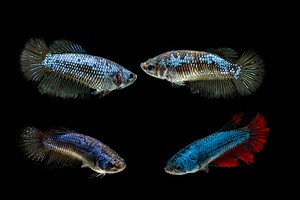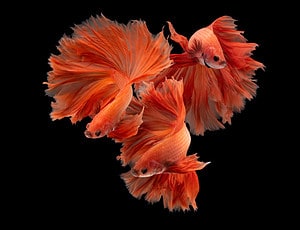Betta fish are absolutely stunning and are one of the most popular species of pet fish. If you’ve noticed that your betta fish isn’t eating, you may be worried. There are a variety of behavioral, environmental, and physical reasons why this can be happening. Keep on reading to find out what could be causing the lack of appetite in a betta fish.
1. It’s Not Hungry
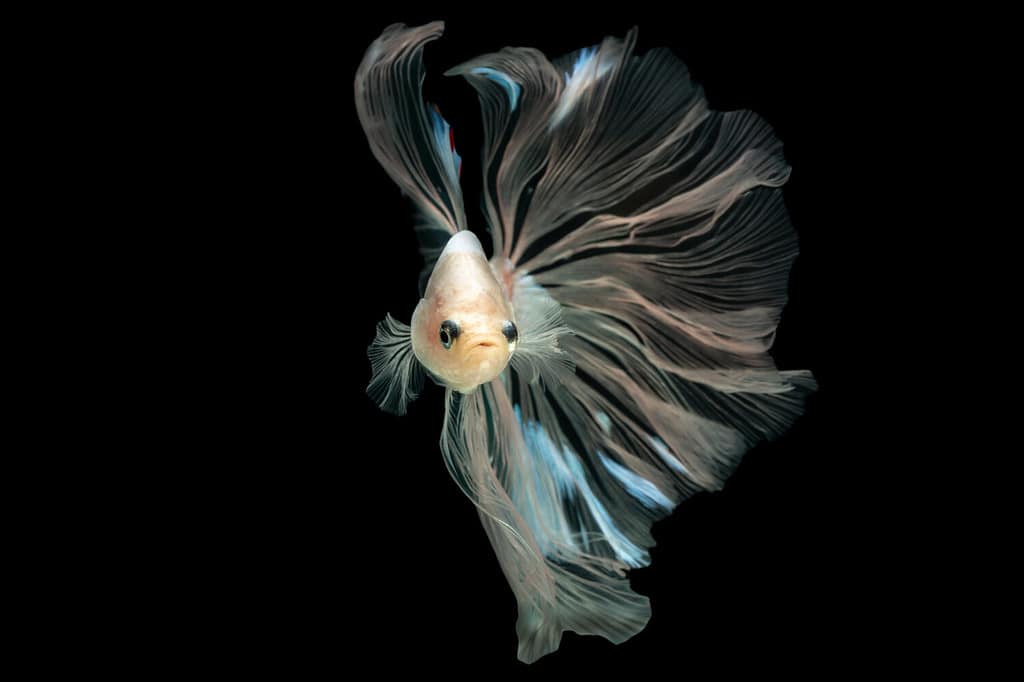
Overfeeding can cause health issues and water pollution.
©3623/Shutterstock.com
We know this reason may seem obvious but it’s still one worth considering. Just like people, betta fish have plenty of feelings and moods. Sometimes they simply may not be in the mood to eat.
You don’t want to force-feed your fish unless advised to by a vet. After placing food in their tank, periodically check to see if the food is still there if you think that your fish is just not hungry at the time of feeding.
This can indicate to you that it may be time to change feeding schedules.
2. They’re a Picky Eater
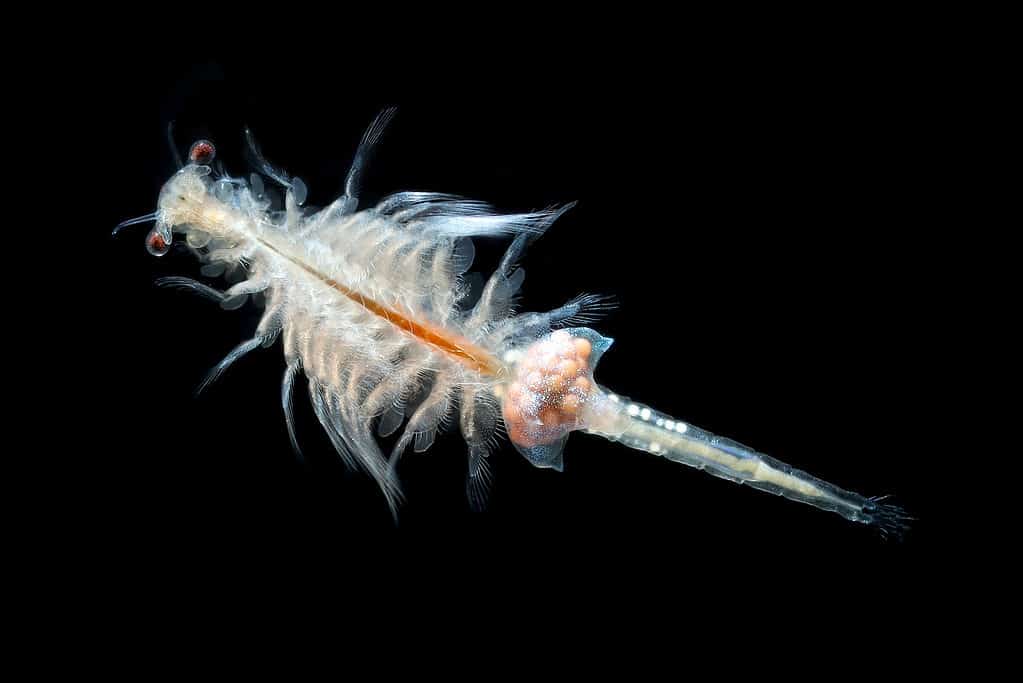
Brine shrimp are one of betta fishes’ favorite foods.
©Dan Olsen/Shutterstock.com
Well you may have done your due diligence to find the proper food to feed your betta, they just might be a picky eater. This can be especially true if you bought a betta fish from a breeder! You should try switching up the foods to see if that triggers your pet to eat.
Betta fish love freeze-dried bloodworms and baby shrimp. Any live food you can put in their tank, such as brine shrimp, will be hard for them to resist. There should also be plenty of hiding spaces in their tank where they can go to eat their food.
3. They’re Pregnant
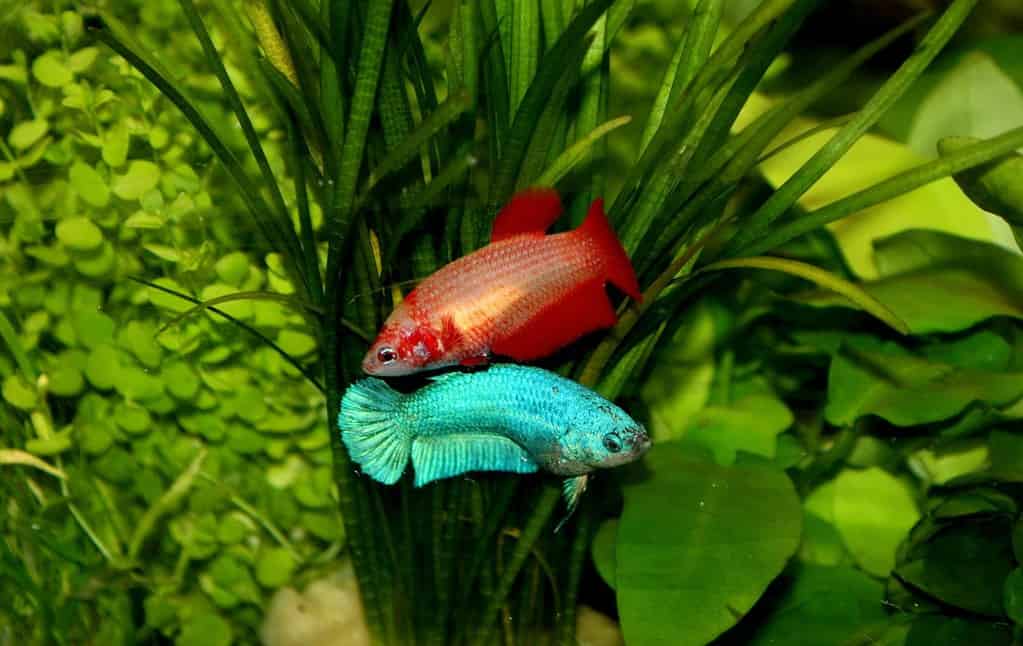
Female bettas tend to have a lot more subtle appearance.
©Arunee Rodloy/Shutterstock.com
If you have a female betta fish, you may want to consider the fact that she could be pregnant. This species tends to eat less and become more relaxed when they’re pregnant. Your female fish may start swimming slower and even have a pregnant belly showing.
4. The Water Temperature Is Wrong

Betta fish need a heater for a constant water temperature.
©Sunny_Smile/Shutterstock.com
This fish species has a specific water temperature range where they can thrive. Anywhere between 73° and 80° seems to be perfect for betta fish. Anything under or above this range can cause your fish to stop eating.
In addition to their appetite, having the proper temperature will benefit a betta fish’s overall health.
5. Parasitic Infections
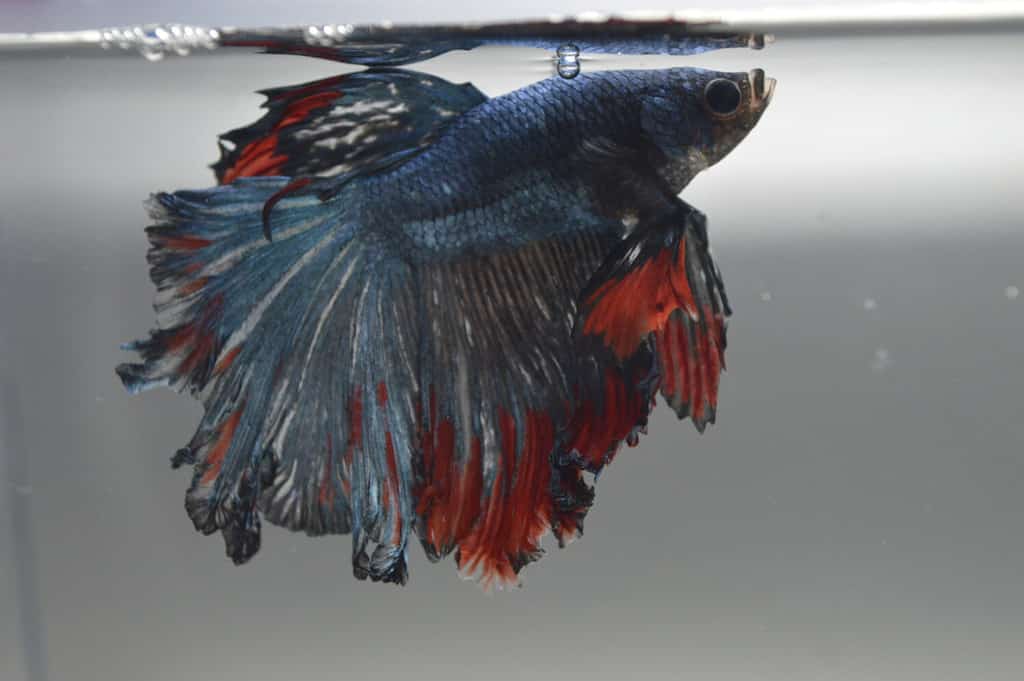
Fin rot is one of the easiest issues to diagnose.
©SoReaux/Shutterstock.com
One of the main reasons a betta fish will stop eating is due to a parasitic infection. parasites within the fish will feed off anything they eat. There are three main types of parasitic infections that betta fish may experience.
These include Ich, Flukes, and Velvet. These each come with unique signs and symptoms. For example, Ich creates white markings on the fish. It also causes them to itch and you may notice your fish rubbing up against the tank or plants.
Flukes are flatworms that live on betta gills. You’ll need a fish dewormer to kill off this parasite. Velvet is one of the more serious infections. It causes the fish to turn a goldish-bronze color. They may also have red bands on their fins.
6. Health Issues
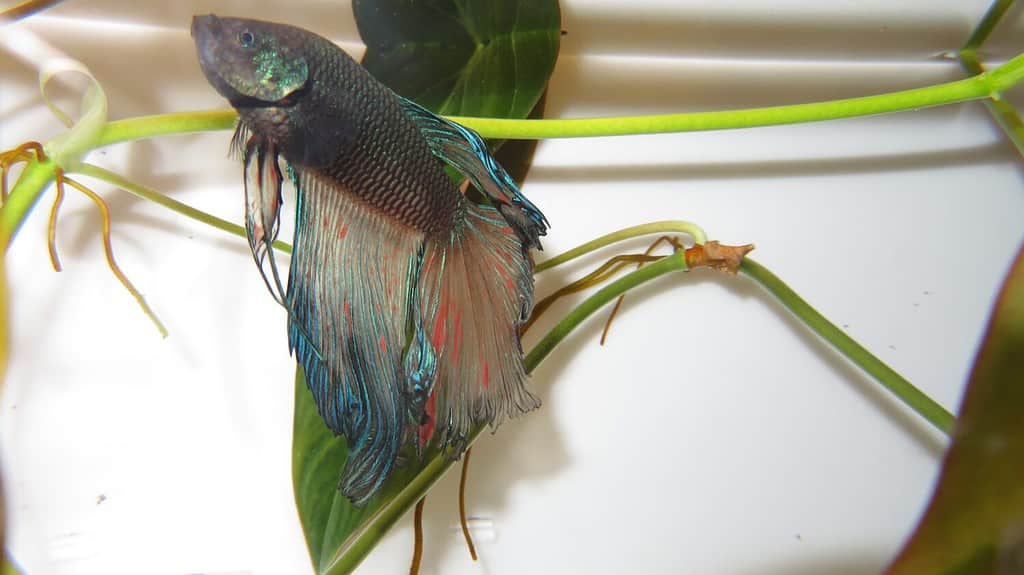
Many betta fish become dull when they have health issues.
©elisabet nugraheni/Shutterstock.com
If your betta fish typically sticks to a regular routine and you’ve noticed that they’ve suddenly stopped eating, it may be a sign that they’re dealing with a health issue. The most common health problems that lead to a lack of appetite in betta fish are swim bladder disease, fin rot, and columnaris.
Fin rot is the easiest to notice because it causes their fins to become dull and ragged. Swim bladder disease is generally brought on by constipation. If your fish has issues staying upright while swimming, they likely have this condition.
7. They’re Stressed
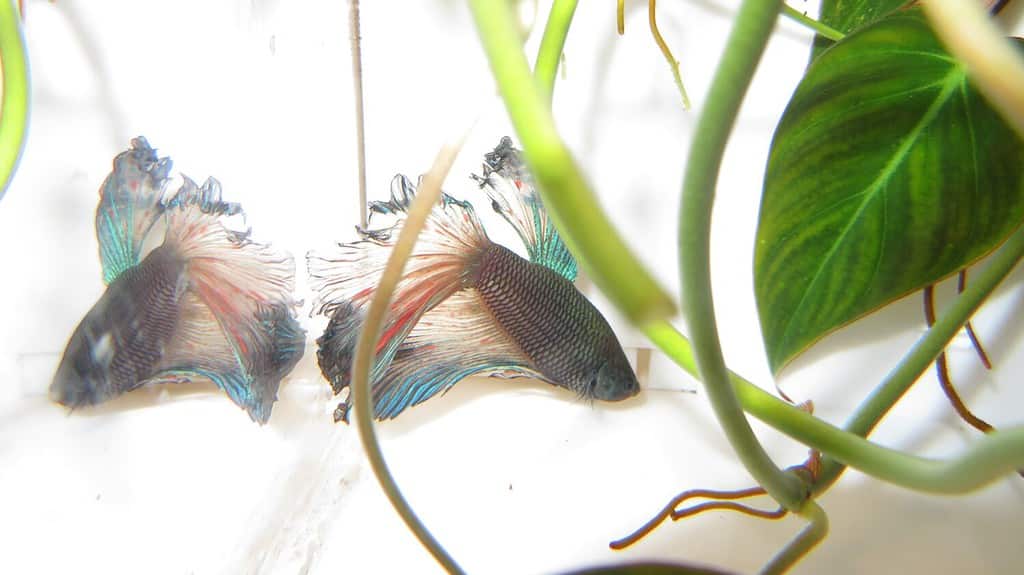
Betta fish need plenty of plants to hide in to reduce stress.
©elisabet nugraheni/Shutterstock.com
Although bettas are strong and independent fish, they can be quite sensitive. This leads them to get stressed relatively easily. If you see that your fish isn’t eating, stress is likely the trigger.
There are several reasons why your fish may be stressed. A lot of it has to do with their environment. Whether you’ve recently moved them to a new tank, have bright lighting, or dirty tank water.
Not enough places to hide and improper pH, ammonia, and hardness levels can also cause bettas to be stressed.
Take Them to the Vet

Betta fish vet visits are generally affordable compared to other pets.
©Tu.Kulaya/Shutterstock.com
Whether you don’t have time in your busy schedule to figure out the cause, or you fear that your pet betta fish may be sick, bring them to the vet. Time is of the essence and a vet can help diagnose the underlying issue.
These animal professionals will likely give you tips on how to get your fish to eat again, depending on why they have a loss of appetite in the first place.
The photo featured at the top of this post is © Mr. Witoon Boonchoo/Shutterstock.com
Thank you for reading! Have some feedback for us? Contact the AZ Animals editorial team.




